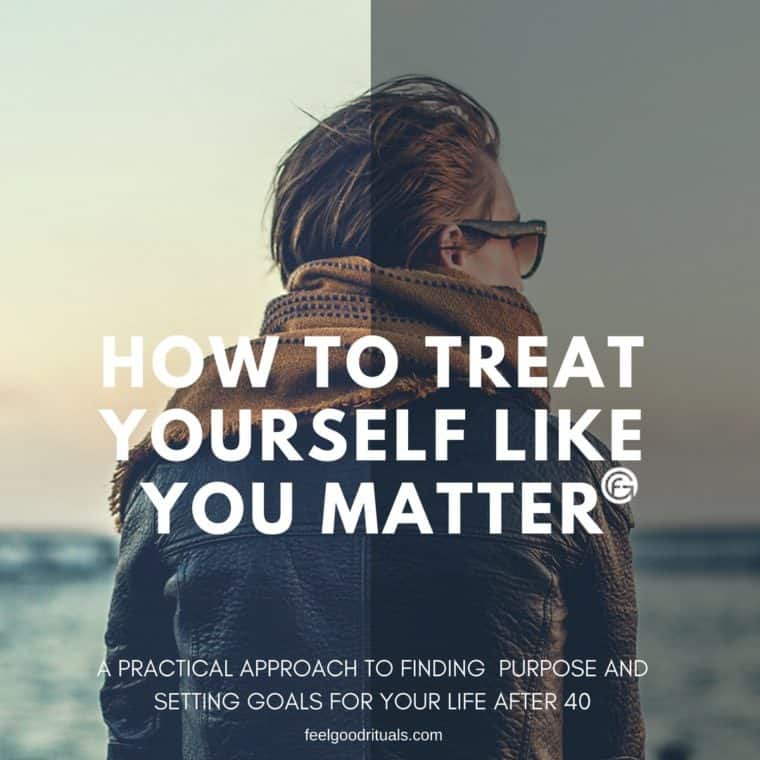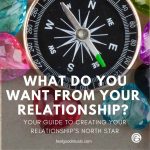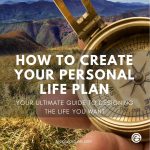One of the main reasons that people don’t get what they want is because they don’t actually figure out what it is.
This sounds obvious, and it is. Still, not many people do it, including myself until a couple of years ago.
Who am I, and what do I really want? Is this what I want? I guess I was scared to ask myself this, because life was too comfortable.
Why would I?
Everything was going great. See, when things go well, we don’t think much about personal identity, or what drives us. First of all, we don’t have to. Don’t fix what ain’t broken, right? But there comes a time in life when many of us wake up discouraged and disillusioned, wondering where we went wrong.
It happened to me.
Getting Into the Mess
Seven years after my wife and I were married, our second son was born. This was also the time when I left the corporate world to start my own company. So, over the course of the next three years, I did very little other than work. Even though I was working a lot, everything was going in the right direction. Money was good. I felt successful and all that.
I was enjoying being free from the corporate hamster wheel. I was my own boss. I felt I was shaping my own future. But, with the two new babies—our newly born son and our new company—things started to falter on the home front.
During workdays, I’d come home late and, after the kids had gone to bed, I would work even more. I’d take my laptop into the living room where I would often work until the early hours of the morning.
Meanwhile, my wife Natalie would lie on the couch, with eyes half open, watching reality shows until she fell asleep. When I finished working, somewhere around 1:00 or 2:00 AM, I’d wake her up and we would both go to bed.
Together but Lonely
With time my wife started to complain. Those were not fully blown complaints. Weaved into other conversations she started to mention here and there that we had grown apart.
Looking back, I can see when we started to drift apart.
We complimented each other less and less, until we almost stopped altogether. We were both quick to notice what the other did wrong, and criticism, often disguised as sarcastic remarks, started to creep in. Frequent blaming and calling up past events became the norm for us. Aside from occasional meetings with friends, we started to have less and less fun together.
Sometimes we fought like dogs and cats. Other times we were walking on eggshells, with some good times in between. Make no mistake, we never stopped caring for each other, nor did we stop loving each other deeply.
But, there was a growing feeling of emptiness, a feeling that there was a space between us that was just growing wider by the day. Worse, we didn’t know how to close the that gap.
The Company Was Doing Great, But I Wasn’t
As one could have expected, my lifestyle started to take a toll on my body. I started to gain weight. not too much, just a small bulb under the shirt that was steadily growing. I was in my mid-thirties then. Even though I didn’t like that, I didn’t pay too much attention.
But who cares? Who has the time, anyway?
On the business front, my company was doing pretty well, and money was good. But I didn’t enjoy the business anymore. I guess I never had. I guess I wanted to be my own boss so much that I never actually asked myself if I truly loved the business we were in. Where was my passion?
Anyway, my business partner at the time (a fine, honest, and trustworthy person who is my friend even now) and I had almost opposite working styles, as well as different life goals. Consequently, we clashed frequently.
At one point I caught myself driving from my home towards the company office with a strange twisting and squeezing feeling in my stomach. It became the stronger and stronger the closer I was to the office. As crazy as it may sound, there were times when I really hated going to the office, even though that was my own company.
After years of doing this I started to think this was going nowhere.
The Toll on the Kids
As usually happens, the growing disconnect and tension between my wife and I, as well as my work-related lifestyle, were taking a toll on our kids too.
One day, our young son’s kindergarten teacher invited us for a talk.
It was a long and sobering conversation. The teacher told us that our son had been acting very aggressively. As we sat there, listening to all the details, we got really scared. So over the next two years we took our son to several different child counsellors. We endured the long, slow, and stressful process of waiting for appointments and evaluations.
It turned out that or son was fine. But my wife and I weren’t.
We were at our lowest point.
Almost Divorced at the Lasting Love Seminar
I can still remember everything as if it was yesterday. Thinking about it today, it almost feels like some kind of a really bad joke.
It so happened that my wife found a seminar called Lasting Love for Couples. The seminar promised to reveal “the secrets” to, well you know … lasting love for couples. To tell you the truth, I didn’t feel like going. I thought no one could give you a recipe for a better marriage in two days. And the name of the seminar was a bit cheesy for my taste as well.
But, out of consideration for my wife, I agreed to go.
I thought, if it’s important to her, then that’s good enough for me. And I thought we needed some time just for ourselves, and the fresh sea air couldn’t hurt. I prepared myself mentally to go there with the best possible attitude.
The seminar itself was a nice blend of interesting guest lecturers, speaking on marriage and relationship topics that got you thinking, accompanied by healthy food, Tai Chi and yoga classes, super healthy smoothies made from vegetables, and many other things that I wasn’t doing much of at the time. So there we were at the sea coast in a nice hotel, surrounded by pine trees, smelling salty, fresh April breezes, and attending the Lasting Love for Couples seminar.
Then it happened.
I believe it was right after one of the lectures. One of the lecturers started telling us that it’s important for each partner to set a firm criteria and a minimum under which they won’t go in regards to the quality of their relationship. Kind of a ‘minimum required quantity of happiness.’
Bam!
Here we were. Divorce. Said loud and clear.
This was a point I never believed I would get to. Sure, the word divorce had been said a couple of times before (by my wife). But it always felt harmless, like she didn’t really mean it.
Now it was different; she said it calmly.
No crying, although tears began to come slowly. She said it with a surprising firmness, as if she’d thought everything through with a kind of determination. It felt like she was determined that this was the right thing to do, and she had reached her conclusion.
It felt surreal. My feelings ranged from a disbelief that this was really happening, to anger. I was angry, not so much because of us, but because I thought about our two beautiful sons, and the suffering they would have to go through. It wasn’t fair. I was thinking about the disappointment of my parents. I was thinking about what our friends would say. All sorts of stuff.
My ego was even angrier. It seemed outrageous to me for my wife to even propose something like that. To me! To me, who is doing everything to make this marriage work! (Side note: notice my internal language in my head. When you hear someone saying ‘always’, ‘everything’ it means they are not ready to accept their part. I certainly still wasn’t).
After about an hour of disbelief I luckily managed to push my ego aside (and believe me, it was not so easy). I waited for the next lecture to finish and invited my wife to our hotel room.
We talked for four or five hours. This was when, for the first time, we felt we were finally listening to each other. What a relief! We realized that we were pressing each other’s buttons like crazy all the time. But we also became aware that we didn’t know how to stop doing that.
Sound familiar?
There’s another thing we were sure of. We knew that we didn’t have many more ‘rehearsals’ at our disposal. We had to fix this or else there was a chance we would breaking up the next time around.
The U-Turn
Here we were. I was 40, and for the first time in my life I felt that instead of going forward I was actually moving backwards.
With the threat that my wife and I could split up and potentially change our lives forever, I decided to make a drastic move. I sold my share of the company to my business partner. The company that I had spent years building, and that had ultimately kept me away from my family.
It was a hard decision for me, but in a sense it was also very simple. See, we’ve always been prudent with money so we saved a lot when times were good. Money was therefore temporarily not a problem.
And I knew that I needed to spend more time with my sons (especially the younger one). So that is exactly what I did. My wife and I knew we needed to start fixing our relationship—which is what we did (with many ups and downs.)
So at the very least, I started to fix things. That was good.
But What was I Going to do With Myself?
This was not a question I had needed to answer, at least not for a long time. Up until then, everything that happened to me was a logical step forward. Finish university, get a job, marry, buy a house, get kids, get a promotion, get a raise… Everything was in place and one thing led to another (in a good way).
I didn’t know what to do. What did I want?
How could I fix the things that I knew were broken?
I was lost. It was not a good feeling.
Even though we were blessed to be in relatively good financial shape, I felt like that was my worst year.
I Could Start Doing Stupid Things
Looking backwards, I see that I could have fallen into a nice little midlife crisis, and started doing stupid things.
I didn’t.
I had the luxury of time to think, and I used that luxury well.
I was searching for the answer about how to find out what I really wanted.
What really mattered to me? What was important to me?
And then, how would I structure a plan, a strategy for my life so it would be meaningful to me, and to others around me.
See, this may sound silly because these are simple questions. But in reality, they are scary.
We tend to go around and our whole life keep telling ourselves and others around us what we don’t want. Yet, when someone stops and asks them directly “Okay, so what IS that you want?” they start mumbling.
When they have to clearly articulate what is that they want, they don’t really know. That’s because they have put their life on a cruise control a long time ago. Just like I did.
That’s also how I came to the title of this post.
Notice the emphasized word YOU.
They will not trust you because they’ll think you don’t mean them well. You’ll end up being alone. In this state, you can’t be a positive force for yourself or anyone else. You’ll suffer sooner or later, and so will everyone around you.
So, here’s what I did.
Step 1 – Create a Life Plan
As I was trying to figure out what to do next, I did two things. I spent a lot of time reading. That was something I wasn’t doing much before (except for strictly business books).
For the next eight months or so I read everything I could find about personal growth, marriage, and relationships that I could get my hands on.
As I was doing that, I was becoming more and more fascinated by the power of the mind in both holding people back and driving them forward. That’s also how I discovered my passion in applied psychology. A year later, I became licensed to practice.
It was around that time that I stumbled upon Michael Hyatt, an author, blogger, speaker, and New York Times bestselling author who writes and publishes mostly on the topic of leadership.
In that respect, he wasn’t exactly what I was looking for. Still, I read his material because he showed the importance of actually creating (which means writing down) a “plan” for your life. This struck a chord with me, and that’s how I came to my version of a Life Plan.
It changed everything.
The process forced me to think hard about questions such as
- How do I want my life to be remembered?
- What things are important to me? In which order? What comes first, and what comes last?
- What’s my envisioned future for these areas of my life?
- What’s my current reality?
- What will I do, and by when? What will I do within the next 12 months to make my envisioned future come true, or get myself a meaningful step closer?
Over the following years I fine tuned my process of creating and updating a Life Plan. It’s amazing what I was able to achieve in one year after I created my first version of my life plan.
Step 2 – Start Journaling
Roughly at the same time that I created my first Life Plan, I began journaling.
How do you make sure that your Life Plan doesn’t just remain a wish list, but something you act upon every day?
In that sense, journaling became one of the most important parts of my life. It’s my conversation with my inner world. It’s my beacon. It’s where I celebrate my successes but also a place where I share my concerns and disappointments.
My journal is where I talk to myself. It makes me a better person. It helps me see things in a clearer light. It helps me be honest with myself but also not too hard on myself (and others).
Do Both
In my experience, if you want to stay on course and have some fun along the way, you need to journal and keep a life plan simultaneously: creating (and updating) your Life Plan and keeping a weekly journal.
Lastly, it brings peace of mind.
Now you know what you need to do, you know how will you do it, and you have a simple system to keep you on track. You feel even more determined and assured that you will reach your goal, and so you start enjoying the journey.
The magnitude of your reward and the feeling of pride as you become aware that you actually are moving towards your goals is intense. The more important the goal you pick, the more life affirming the reward is, and the better you feel.
Would you want some of that?











Please note: I reserve the right to delete comments that are offensive or off-topic.